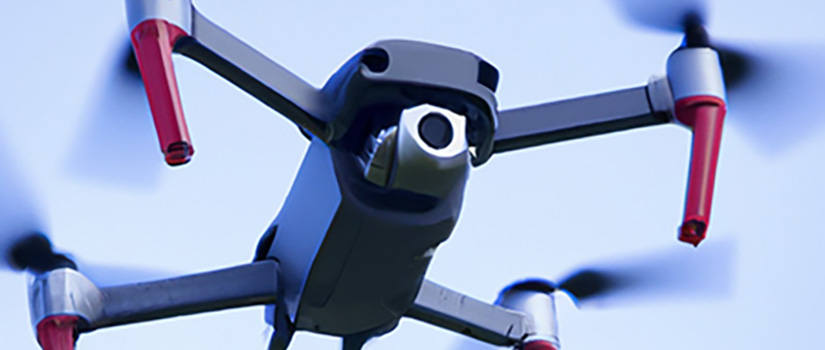All law is technology law. Regulating railroads, litigating automobile crashes, protecting digital privacy, and governing artificial intelligence have all involved the technologies of their time. Today, technology law can refer to:
- Innovation law in the narrow traditional sense (i.e., intellectual property law).
- Data ownership, access, security, protection, and discovery (e.g., privacy law and cybersecurity law).
- The relationship between law and technology in the past, present, or future (e.g., robot law).
- The legal implications of new technologies (e.g., legality of electronic surveillance).
- The use of new technologies in the practice of law (e.g., contracts written by generative AI).
- The provision of legal services through new technologies (e.g., automated online wills).
- Code/technology as law (e.g., programmable rules of the road).
- Competency in the technologies that law will confront (e.g., basics of machine learning).
- The use of new technologies in legal education (e.g., classes with augmented reality).
- Policymaking for new technologies (e.g., advocating for different liability rules for internet platform companies).
The key here is that everything you do in law—from tax to trusts—will implicate technology. Corporate attorneys and environmental attorneys must understand law and technology just as technology lawyers must understand corporate law and environmental law.
Practitioners of technology law excel in many areas. Tony D'Elia is Chief Privacy Officer for the State of South Carolina. Derek Tarver litigates complex products liability cases involving difficult questions of design and performance. Marianna McDevitt advises clients on financial technologies (fintech).
We offer a wide range of courses on technology law. Not every course is offered regularly, and to be a well-rounded lawyer you should take many other courses as well.
Courses focused on technology
- Bioethics Seminar (Laws 721)
- Climate Change Seminar (Laws 734)
- Copyright and Trademark Law
- Cybersecurity Law and Policy (Laws 806)
- Data Privacy (Laws 844)
- Electronic Discovery (Laws 703)
- Artificial Intelligence, Law, Ethics, and Policy (LAWS 851)
- Energy Law (Laws 826)
- Environmental Law and Policy (Laws 816)
- FinTech Law, Regulation, and Policy (Laws 598)
- Intellectual Property (Laws 724)
- International Environmental Law (Laws 666)
- International Intellectual Property (Laws 725)
- International Trade Law (Laws 665)
- Intersection of Health Law and Technology (Laws 794)
- Lean Law Firm Law (Laws 599)
- Patent Law (Laws 722)
- Products Liability (Laws 690)
- TechInLaw Legal Externships
- Technology and Criminal Prosecution (Laws 667)
- Technology and Innovation Externship
- Technology and the Practice of Law (Laws 693)
- Technology Law: Law of the Newly Possible (Laws 680)
- The Future of the Legal Profession (Laws 686)
- Transportation Law (Laws 760)
- Use of Force, Sanctions, and Tech Transfer Law (Laws 842)
Courses aware of technology
- Civil Procedure (Laws 544) considers e-discovery.
- Coastal Law (Laws 568) considers the use of LIDAR and GPS technologies.
- Contract Law (Laws 504) considers smart contracts.
- Environmental Law of Natural Resources (Laws 684) considers fracking, fish location sonar, and other modern resource-extraction technologies.
- Food and Drug Law (Laws 655) considers the regulation of new technologies as medical devices.
- Individual Employment Law (Laws 630) considers employer monitoring through technology.
- Legal Research, Analysis and Writing (LRAW) (Laws 533 and Laws 534) consider the use of research and writing tools.
- Securities Regulation (Laws 606) considers cryptocurrencies.
- Torts (Laws 529) considers technologies from railroad to cars to the internet to generative AI.
- Combination JD/MBA with an option to complete a Cybersecurity Management Certificate
- Combination JD/Master of Mass Communication
- Procertas Legal Technology Assessment
- Westlaw and Lexis Certifications
The Technology, Innovation, and Law Collaborative (TechInLaw) is our home for students, faculty and staff, alumni, and other professionals who are interested in law and technology. It includes:
- The LegalTech Seminar Series, which welcomes nationally renowned experts on the technological tools and issues that will be critical to the effective practice of law.
- TechInLaw Legal Externships, which provide students with technology-relevant work experience.
- Opportunities for students to conduct research, publish blog posts, and engage with experts.
- And much more!
Our relevant student organizations include:
- Technology Law Students Association
- Blockchain Law Society
- Intellectual Property Law Society
- Environmental Law Society
- Health Law Society
- Sports and Entertainment Law Society
- National Security Law Society
These (and other) faculty and staff may be available to advise you, supervise your own legal research ("SLR"), or hire you as a research assistant. Learn about them through their biographies, and then consider reaching out.
- Professor Marie Boyd
- Professor Elizabeth Chambliss
- Professor Jesse Cross
- Professor Tessa Davis
- Anthony D'Elia
- Professor Jacqueline R. Fox
- Aaron Glenn
- Dean William Hubbard
- Professor David K. Linnan
- Professor Rebecca K. Maxwell
- Professor Colin Miller
- Amy Milligan
- Dean Gary Moore
- Professor Joseph Seiner
- Professor David Sella-Villa
- Professor Bryant Walker Smith
- Dean Ned Snow
- Professor Seth Stoughton
- Law Library Technology Blog
- Law Library Guides on Cybersecurity, Law Firm Technology, and Intellectual Property
- Law school-wide Generative AI listserv
- University Libraries DataLab
- SC Bar Committee on Intellectual Property and Innovation Law
- SC Bar Committee on Technology
- SC Council on Competitiveness
